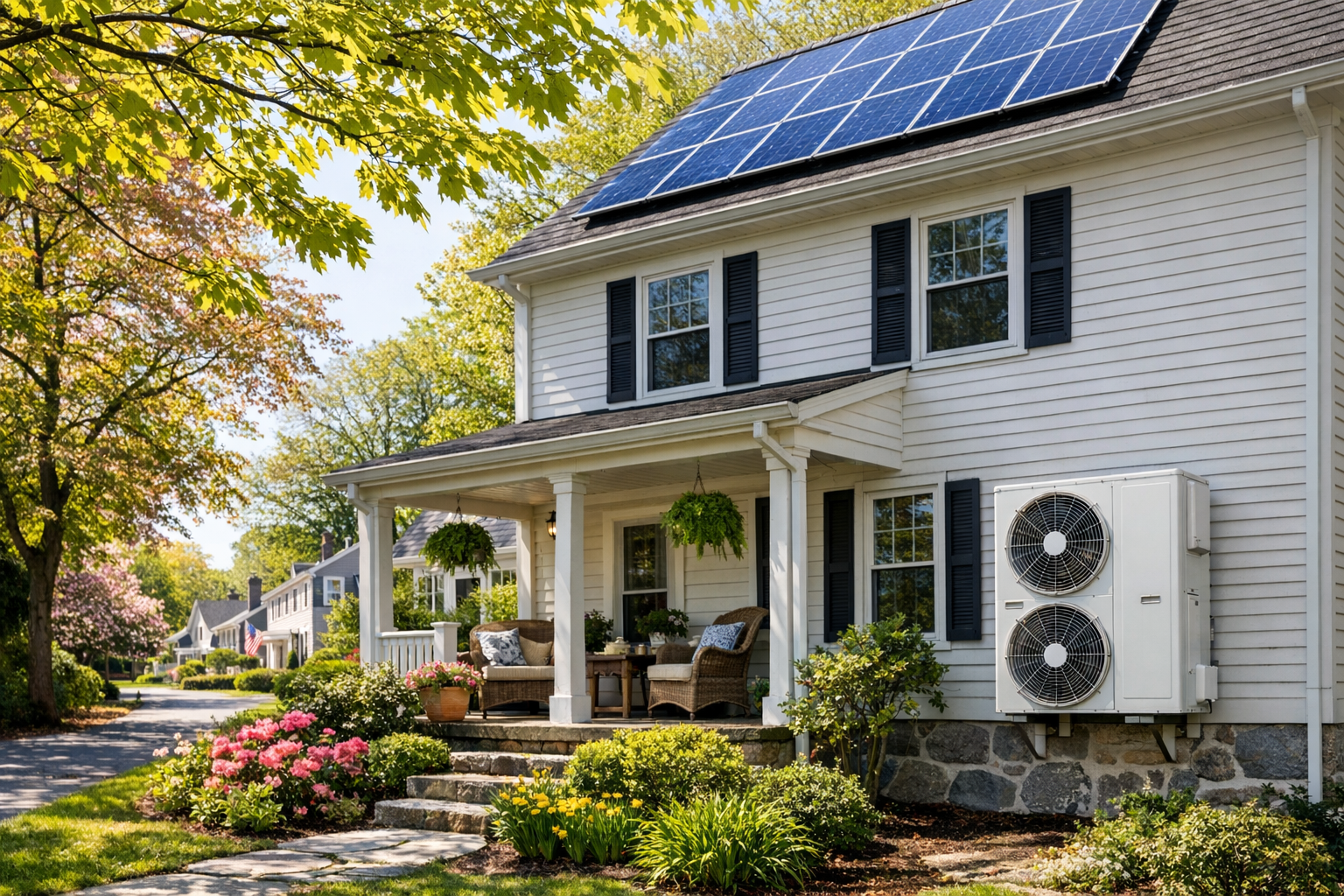Get the Best Heat Pump Quotes in MA
If you’ve been thinking about upgrading your home heating and cooling system, you may have noticed ...
READ
The Affordable Homes Act is the largest housing investment in Massachusetts history, aiming to tackle rising housing costs and increase housing supply. With over $4 billion in funding, the bill introduces sweeping changes designed to create new housing opportunities, modernize existing units, and make homeownership more attainable. One of the most significant aspects for homeowners is the focus on Additional Dwelling Units (ADUs), making it easier to build rental spaces on existing properties. Here’s what you need to know about how this act will impact housing in the state.
Encouraging Additional Dwelling Units (ADUs): The bill promotes ADUs, making it easier for homeowners to build and rent them out.
Expanding Affordable Housing: More than 40,000 new homes will be created, along with improvements to 27,000 existing units.
Investing in Public Housing: $1.6 billion allocated for public housing maintenance and accessibility upgrades.
Driving Development: $1.83 billion dedicated to housing construction, preservation, and infrastructure improvements.
Climate-Focused Housing Initiatives: $275 million for sustainable housing and energy-efficient upgrades.
Supporting Vulnerable Communities: Increased funding for low-income and middle-income housing, plus supportive housing for disabled residents.
Homeownership Incentives: New tax credits and funding programs to make purchasing a home more accessible.
Addressing Seasonal Housing Needs: Establishes new programs and tax exemptions to support year-round rental housing in seasonal communities.
One of the most exciting parts of this bill for homeowners is the increased support for ADUs. These small, secondary housing units—such as basement apartments or backyard cottages—can help homeowners generate rental income while also increasing affordable housing options. The act includes zoning reforms and financial incentives to streamline the approval process, making it easier and more cost-effective to add an ADU to your property.
The Affordable Homes Act aims to add over 40,000 new homes and preserve or improve more than 27,000 existing units. A significant portion of these homes will be reserved for low-income families, ensuring that housing remains accessible to those who need it most. This effort is designed to combat the housing shortage and reduce the financial burden on renters and homeowners alike.
With $1.6 billion allocated to public housing improvements, the act prioritizes much-needed maintenance and accessibility upgrades. More than 7,000 public housing units will undergo repairs, and 3,000 units will be decarbonized to align with the state’s clean energy goals. Additionally, $100 million is set aside for mixed-income developments, encouraging local housing authorities to expand affordable housing options.
The act also includes provisions to improve the efficiency of public housing management, allowing housing authorities to borrow against capital funding, streamline audits, and increase flexibility in redevelopment projects while ensuring tenant protections.
To further stimulate housing production, the act includes $1.83 billion in funding for infrastructure, new developments, and preservation projects. This includes:
$425 million for the Housing Stabilization and Investment Fund, aimed at supporting new and rehabilitated housing projects.
$175 million for municipal infrastructure improvements to encourage high-density housing development.
$100 million for the CommonWealth Builder program, which fosters affordable homeownership in Gateway Cities and other growing areas.
Additional funding for large-scale, mixed-income multifamily developments through the Momentum Fund.
The bill also introduces zoning reforms such as allowing ADUs by-right in single-family zoning districts and simplifying the process for municipalities to adopt inclusionary zoning policies.
Massachusetts is making strides in sustainable housing development with a $275 million investment in energy-efficient, transit-oriented housing. This includes funding for office-to-residential conversions and modular housing developments, helping create more homes while reducing environmental impact. The bill also aligns public housing investments with state climate goals, ensuring that all new developments incorporate energy-efficient designs and materials.
Beyond housing production, the act commits substantial funding to support the most vulnerable residents. Key allocations include:
$800 million for the Affordable Housing Trust Fund, providing flexible resources for low- and moderate-income housing.
$200 million for the Housing Innovations Fund, aimed at addressing homelessness, veteran housing, and transitional living needs.
$100 million for middle-income housing development, benefiting households earning up to 120% of the area median income.
$70 million for the Facilities Consolidation Fund to support community-based housing for Department of Mental Health and Department of Developmental Services clients.
$55 million for Community Based Housing to support individuals with disabilities.
A new Supportive Housing Pool Fund to assist in staffing and service coordination for vulnerable residents.
The act introduces new incentives to support first-time homebuyers and moderate-income households. These include:
$100 million for the Middle-Income Housing Fund to help those earning up to 120% AMI.
$100 million for CommonWealth Builder to spur the construction of affordable single-family homes in Gateway Cities.
Up to $50 million for the Affordable Housing Trust Fund to support first-time homebuyers.
A Homeowner Production Tax Credit to bridge the gap between development costs and affordable sale prices.
Changes to the state’s receivership laws to allow faster transfer of vacant properties to non-profits for affordable homeownership.
Massachusetts' seasonal communities face unique housing challenges due to fluctuations in population and employment. The act introduces:
A Seasonal Communities Designation, enabling targeted housing policies for these areas.
A Seasonal Communities Local Option Property Tax Exemption, allowing for tax incentives to develop year-round rental housing.
The Affordable Homes Act represents a historic step toward solving Massachusetts’ housing crisis. Whether you’re a homeowner looking to build an ADU, a renter seeking affordable housing, or a prospective homebuyer exploring new incentives, this bill has something for everyone. With a focus on expanding housing opportunities, modernizing infrastructure, prioritizing sustainability, and addressing the needs of vulnerable communities, the act is set to reshape the state’s housing landscape for years to come.
How have you experienced the changes so far, have you starting applying to build an ADU on your property?
Sign up for our newsletter, stay updated on the local real estate market and learn something new about home ownership, MA real estate regulations and healthier, more efficient homes.

If you’ve been thinking about upgrading your home heating and cooling system, you may have noticed ...
READ
If you have toured a home with me, you already know I will absolutely stop mid showing to point out ...
READ
As a Massachusetts resident and a real estate agent, I see the housing affordability crisis from ...
READ